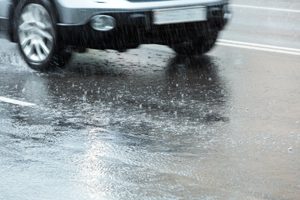
After a long winter, most people look forward to the summer sunshine, but first it's necessary to get through spring – which generally consists of a mix of warmer weather and rain. Although an overcast sky and a wet ground are easy to complain about, allergy experts suggest that rain can actually help bring relief to individuals who react negatively to pollen.
According to the American Academy of Allergy, Asthma & Immunology (AAAAI), seasonal allergies affect millions of individuals each year. As the pollen count rises, those who are allergic to this irritant may experience symptoms such as a runny nose, sneezing and itchiness in the nose, mouth and eyes.
Fortunately, reports High Point Enterprise, a daily newspaper in North Carolina, rain can reduce the impact of pollen by washing out these particles and causing flower heads to become wet, which slows down their ability to disperse the allergen.
That being said, this brief respite from sneezing and itching may not last long.
"The pollen numbers can rebound pretty quickly. We've had days in the past where we had soaking rain that knocked down pollen levels. If [the] sun comes out and the wind picks up, the numbers can come back quickly," allergy specialist Dr. Robert Ross told the source.
In addition to seeing a specialist and using any medication you've been prescribed to combat your allergies, there are other actions you can take to reduce your symptoms this season. You may want to consider investing in a whole house air purifier, which removes allergens directly from the air and makes it easier for you to breath inside your home. If you spend a lot of time in your vehicle, a car cabin air filter can prevent pollutants from getting into the passenger compartment.









